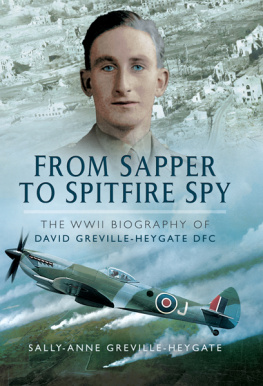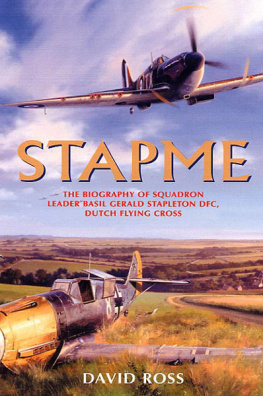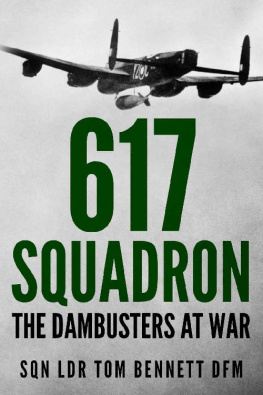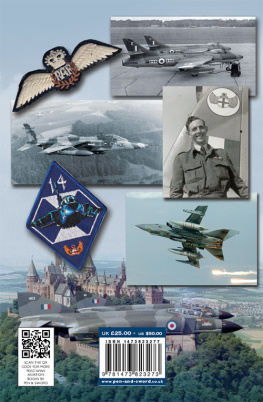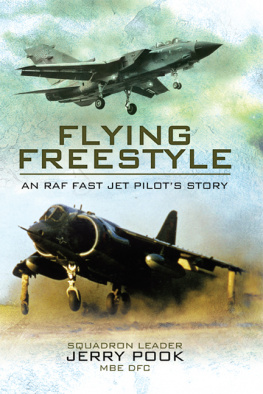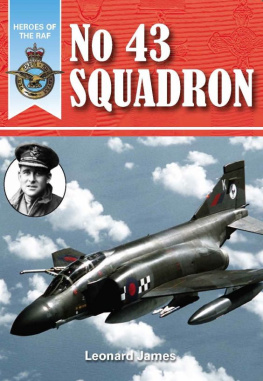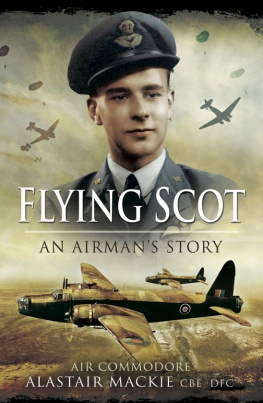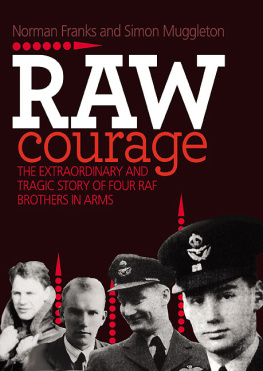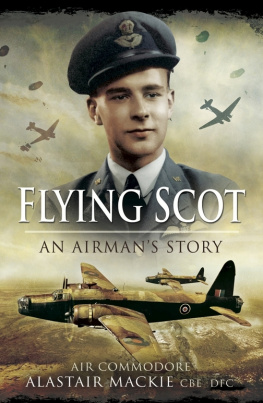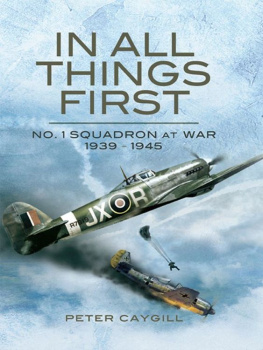The military organisation with the best aerial reconnaissance will win the next war.
General Werner Von Fritsch of the German High Command 1938
First published in Great Britain in 2015 by
Pen & Sword Aviation
an imprint of
Pen & Sword Books Ltd
47 Church Street
Barnsley
South Yorkshire
S70 2AS
Copyright S.A. Greville-Heygate 2015
ISBN: 978 1 47384 388 2
PDF ISBN: 978 1 47384 391 2
EPUB ISBN: 978 1 47384 389 9
PRC ISBN: 978 1 47384 390 5
The right of S.A. Greville-Heygate to be identified as the Author of this Work has been asserted by him in accordance with the Copyright, Designs and Patents Act 1988.
A CIP catalogue record for this book is available from the British Library
All rights reserved. No part of this book may be reproduced or transmitted in any form or by any means, electronic or mechanical including photocopying, recording or by any information storage and retrieval system, without permission from the Publisher in writing.
Typeset in Ehrhardt by
Mac Style Ltd, Bridlington, East Yorkshire
Printed and bound in the UK by CPI Group (UK) Ltd,
Croydon, CRO 4YY
Pen & Sword Books Ltd incorporates the imprints of Pen & Sword Archaeology, Atlas, Aviation, Battleground, Discovery, Family History, History, Maritime, Military, Naval, Politics, Railways, Select, Transport, True Crime, and Fiction, Frontline Books, Leo Cooper, Praetorian Press, Seaforth Publishing and Wharncliffe.
For a complete list of Pen & Sword titles please contact
PEN & SWORD BOOKS LIMITED
47 Church Street, Barnsley, South Yorkshire, S70 2AS, England
E-mail:
Website: www.pen-and-sword.co.uk
Contents
Acknowledgements
With special thanks to my editor Neil Barber, Jeremy Greville-Heygate, Jimmy Taylor, Donna Thynne, Tim Hutton, Rosie Hickton, James Dunford Wood, Thomas Thorne, Anthony Hornidge, Steve Brooking, Denis Critchley-Salmonson, Michael Adler, Carol Felton, Charles Shepherd, Lucie Johnson, Charles Craig Harvey, Alan Clark, Francesca Stern, Hans Onderwater, Colin Ford, Ross McNeill, Stephen Fryer, John and Mark Wendelken, Keith Janes, Bob Hunt, Henry Crun and Henk Welting.
All the contributors of RAF Commands Forum Website including Andrew Fletcher, Col Bruggy, Steve Brew, Dennis Burke, Buz, Alex Crawford, Russ G. Carlos Guerreiro, Allan Hillman, Mark Hux, Norman Hood, Bertrand H, Andy Ingham, Jonny John E, Joss leclercq, Paul McMillan, Errol Martyn, Pierre, Renier and Alex Smart.
Note: Sometimes there were discrepancies between Davids diary, Logbook, Squadrons Records and notes, but I kept dates, names and places as accurate a record as possible.
Every effort has been made to contact copyright holders of quotes and illustrations. the author will be glad to make good in future editions, any error or omission brought to her attention.
The publication of quotes or illustrations on which clearance has not been given is unintentional.
Glossary
BEF | British Expeditionary Force |
C patrol | Shipping patrol in designated area C |
Circus | Fighter escorting bombing raid over enemy territory |
CFI | Chief Flying Instructor. |
C/O | Commanding Officer |
Crammed | Intensively trained over a short period |
Dicey | Dangerous/dicing with death |
Doodlebug | Fieseler Fi 103 pulse-jet flying bomb. V-1 |
DFC | Distinguished Flying Cross |
EFTS | Elementary Flying Training School |
Enigma | German code. |
Flak | German anti-aircraft fire. (Flugzeug Abwehr Kanone) |
Flight | Subdivision of a squadron |
Glycol | Ethylene Glycol, an engine coolant |
GSU | Group Service Unit |
Hedge Hop | Flying low to ground so the aircraft seems to hop over hedges |
Hit the Deck | Crash into the ground |
ITW | Initial Training Wing |
LAC | Leading Aircraftman |
Lagoon | Anti -shipping patrol off enemy coast |
Luftwaffe | German air force |
Me109 | Messerschmitt Bf109 German fighter. Wartime reports used both BF109 and Me109. |
MT | Mechanized Transport |
NCO | Non-commissioned Officer |
Op/Ops | Operational flying |
OTC | Officer Training Corps |
OTU | Operational Training Unit |
Popular | Low altitude photography over enemy territory. |
Proctor | Cambridge appointed staff to supervise students |
RAFVR | Royal Air Force Volunteer Reserve |
Revs (rpm) | Rotational speed, in revolutions per minute |
Rhubarb | Daylight low level attacks on enemy aircraft, roads, trains or trucks using machine guns |
R/T | Radio Telephone Voice communication |
Section | Subdivision of a flight |
SFTS | Service Flying Training School |
Sortie | Individual aircrafts Operational flight |
Sprog | Novice pilot |
Strike | Low-level attack |
Sweep | Offensive formation to draw enemy aircraft |
TA | Territorial Army |
Tac/R | Tactical Reconnaissance |
TAF | Tactical Air Force |
WAAF | Womens Auxiliary Air Force |
W/O | Wireless Operator |
Introduction
This book is dedicated to James and Charlie Harrison whose unquestioning love and encouragement over the years, kept me writing.
T his is the story of my father, David Greville-Heygate, one of the few men who served in both the Army and the RAF during the course of the Second World War. Called up by the Army at the start of the war, he manned an AA searchlight located just south of Wittering Airfield. Finding this work dreary and monotonous, and envying his older brother Charless training in the RAFVR, David applied for Army Officer Training at Sandhurst. After gaining a commission as a Second Lieutenant in the Loyals and posted to Portsmouth, he had A bit of a row with the Brigadier, and was finally able to transfer to the RAF. After gaining his Wings he was posted to Weston Zoyland as a Reconnaissance pilot. He flew a variety of aircraft based in England, the Netherlands and finally Germany.
After the war, David returned to civilian life. He began to write about his war years, but with failing health, his book never materialized.
Davids voice in this book has been recreated using edited material from diaries, notes, letters, family and friends conversations and interviews, along with his flight Log Books and Squadron Records.
Sally-Anne Greville-Heygate
September 2014
Part I
Pre-War
Looking Back
September 1984. Looking back on what must to many seem a short and exceedingly troubled era, one might well ask, Why remember? But it is a fact that as one gets older, the past grows not dim but clearer, and occupies a larger and wider place in ones quieter moments. The fortunate have the joyful days of their youth to recall in happy hours, with little worry or anxiety as to what the future may have in store. Others may remember their youthful days with less pleasure and with mixed feelings.
Next page
